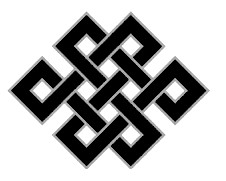Fuck Yeah, Tibet!
All things Tibetan that we love.
བོད༏
Sights, scenery and news sources from the land and people of the nation under illegal occupation of the Chinese government.

Tashi Delek has become the common, everyday, Tibetan greeting, but it was not always so. Tashi means auspicious and delek (also transliterated, deleg or deleh) means fine or well. It is properly used at the end of a message or meeting. The phrase means something like, “May everything be well” or “auspicious greetings.” It is also used as a synonym for the word “greetings,” so people are heard to say, “Many tashi deleks.”
Tibetan-speakers of Ladakh, which is today included in the Indian province of Jammu and Kashmir, say Joolay which means, “Victory to the gods!” Since there is evidence to suggest that Tibetans moved to their high plateau from somewhere to the West, it may be that Joolay is the older greeting.
Sticking out the tongue was once a common form of formal Tibetan greeting which has not yet completely disappeared:
“In 1727, when Tibet was invaded by Dzungars, the practice of Bon was again prohibited. Many Bon Lamas were executed at this time, and the Nyingmapas were persecuted as well. When meeting, the Dzungars would force the Tibetans to show their tongues. They thought that if the tongue was a light color, it proved that the person was neither a Bonpo nor a Nyingmapa. It was believed that the tongues of these peoples had turned black or brown due to numerous recitations of mantras.”
Tashi delek, everybody! :)
(via tenzinchosang-blog)


